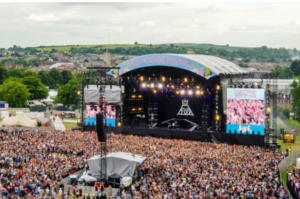by Myrea Quarino
According to the British anthropologist Tylor, culture can be defined as a broad set of knowledge, language, religion, art, beliefs, and customs. Without a doubt, music plays a significant role in helping construct the identity not only of individuals but also of communities and nations.
Throughout recent history, each decade has been characterised by a distinct kind of music closely linked to a subculture.
 Within the European continent, the country that has produced and continues to release high-quality music is the United Kingdom. There are numerous musical genres and cultural movements developed in this country, from beat music, heavy metal, and progressive rock to punk, new wave, and Britpop, which have left their marks on the British and world cultural heritage.
Within the European continent, the country that has produced and continues to release high-quality music is the United Kingdom. There are numerous musical genres and cultural movements developed in this country, from beat music, heavy metal, and progressive rock to punk, new wave, and Britpop, which have left their marks on the British and world cultural heritage.
Music festivals are the events where these styles come together, gathering different generations in a moment of sharing and social encounter. The UK can certainly boast a long tradition of music festivals, which continues to have an impact on the common consciousness of both those who took part and those who never had direct experience of them.
During the summer season Southeast England and Southampton, in particular, host the Isle of Wight Festival and the Reading Festival attracting countless fans from all over the world.
The former was held for the first time on the Isle of Wight in 1968 and then revived in the 2000s whereas the latter has taken place in Reading, a city in southeast England since the 60s, although it acquired its current features about ten years later. Both include many stages and performances while offering various creative activities.

The most historic edition of the Isle of Wight Festival occurred in 1970 when big headliners such as the Who, the Doors, and Jimi Hendrix played for a crowd of over 600,000 people. It is safe to state that these phenomena are an essential part of British heritage.
It is interesting to note that live music still has a strong cultural influence on people despite music fruition moving increasingly to the digital front. This shows that culture can be built through interactions and experiences. It is also worth noting that an island such as Great Britain can be a symbol for artists and is able to affect the European population and beyond.



